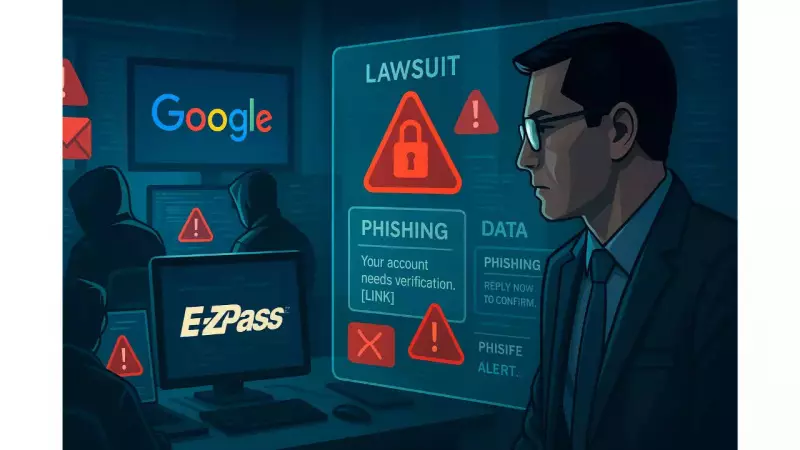
Google Takes Legal Action Against International Cybercrime Syndicate
Tech giant Google has initiated a significant legal battle against a foreign cybercriminal organization primarily operating from China. The company alleges that this hacker group has been running an extensive SMS phishing campaign, commonly known as "smishing," targeting users across the United States and globally.
According to Google's legal filing, the cybercrime collective, identified by some security researchers as the "Smishing Triad," utilized a sophisticated phishing-as-a-service toolkit called "Lighthouse" to create and deploy fraudulent text messages. The scale of this operation is staggering, with the company reporting that the group has successfully victimized over one million people across 120 countries worldwide.
How the Smishing Operation Worked
Google's legal representative, Halimah DeLaine Prado, explained to CNBC that the criminals strategically exploited public trust in well-established brands. "They were preying on users' trust in reputable brands such as E-ZPass, the US Postal Service, and even us as Google," she revealed. The Lighthouse software enabled attackers to generate numerous templates that created fake websites designed to harvest personal information from unsuspecting victims.
The fraudulent text messages typically contained links directing users to these counterfeit websites that appeared legitimate. These messages often presented themselves as urgent fraud alerts, delivery notifications, or warnings about unpaid government fees, creating a false sense of emergency that prompted immediate action from recipients.
The primary objective of these smishing attacks was to collect sensitive financial information, including social security numbers, banking credentials, and credit card details. Google's investigation suggests the group may have stolen between 12.7 million and 115 million credit cards in the United States alone, highlighting the enormous financial impact of their operations.
Legal Strategy and Group Structure
Google has pursued multiple legal avenues in its lawsuit, filing claims under the Racketeer Influenced and Corrupt Organizations (RICO) Act, the Lanham Act, and the Computer Fraud and Abuse Act (CFAA). The company aims to completely dismantle the criminal network and permanently shut down their Lighthouse platform.
Internal and external investigations uncovered that approximately 2,500 syndicate members coordinated their activities through public Telegram channels. These digital spaces served as recruitment hubs, information exchange platforms, and maintenance centers for the Lighthouse software.
The criminal organization operated with remarkable sophistication, maintaining separate specialized units: a "data broker" team that supplied victim lists, a "spammer" team responsible for sending phishing messages, and a "theft" team that utilized stolen credentials to conduct further attacks.
Google's investigation identified more than 100 website templates generated by the Lighthouse kit, many of which improperly used Google's branding on sign-in screens to deceive victims into believing the sites were authentic.
Broader Implications and Protective Measures
This lawsuit represents a pioneering legal approach, marking the first time a company has taken legal action specifically against SMS phishing networks. DeLaine Prado emphasized that "the idea is to prevent its continued proliferation, deter others from doing something similar, as well as protect both the users and brands that were misused in these websites from future harm."
Beyond the lawsuit, Google is supporting three bipartisan bills aimed at reducing fraud and cybercrime: the Guarding Unprotected Aging Retirees from Deception (GUARD) Act, the Foreign Robocall Elimination Act, and the Scam Compound Accountability and Mobilization Act.
"While the lawsuit is one potential vector in which we can disrupt it, we also think that this type of cyber activity requires a policy-based approach," DeLaine Prado stated, highlighting the need for comprehensive solutions to address the growing threat of cybercrime.
As part of its ongoing cybersecurity awareness campaign, Google has introduced new safety tools, including a Key Verifier feature and AI-powered spam detection in Google Messages, providing users with enhanced protection against similar threats in the future.






